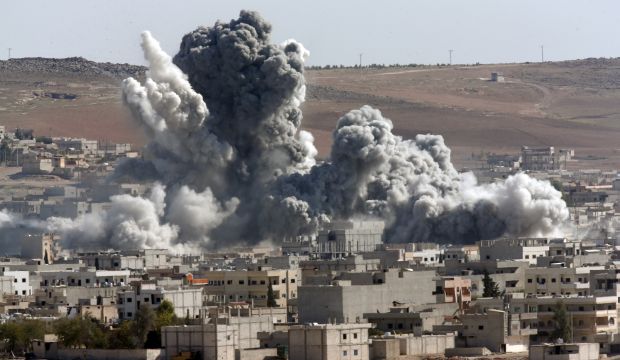It takes years, or sometimes even decades, until we can judge whether the response to a major event has been correct or not. While we also know that sometimes a good decision can tip over to become a bad one, simply based on timing. US President Barack Obama’s delay in taking a quick stance against the Islamic State of Iraq and Syria (ISIS) has proven risky. When circumstances demand a quick decision, you must take it—you cannot wait and study the situation from all angles. This reminds me of a story I once heard. A Palestinian saw a child drowning in front of him, he immediately jumped into the water to save the child. After the child was rescued two things became apparent: first, that the child was Israeli; and, second, that the Palestinian savior was not a strong swimmer. Still, he made a decision!
Barack Obama is dealing with the current crisis with a post-Vietnam mentality. He is afraid to embroil the US—and indeed the rest of the world—in another Vietnam War. However, before the next US president takes office in the White House, we must put this Vietnam fallacy to bed. Every US president, sooner or later—but usually later—discovers what the Palestinian savior in the above story did: you must first act, before the moment passes. Former US President George W. Bush destroyed Iraq, and US credibility, with his recklessness and his insistence on war. While his father, former US President George H. W. Bush, was also reckless during his presidency, leaving the world to deal with a major crisis thanks to his foreign policy with regards to the first Gulf War.
But let us go back to before that. The year is 1961 and the Iraqi regime of Abdel Karim Qasim is threatening to invade Kuwait. It was the British at this time who had to send a military force to the region. However, they pursued a different policy than the one the US subsequently did with Qasim realizing that he would not just be facing Kuwait forces, but a joint international–Arab force. He gave the order for his soldiers to return to their barracks.
While in July 1991, 30 years later, there could be no doubt that Saddam Hussein would seek to invade and annex Kuwait. US satellites and high-altitude spy planes were clearly showing Iraq’s military preparations for just such a move. Therefore, the world expected President Bush to send US troops to Kuwait in a show of force to prevent the invasion before it could even begin. However, ultimately the moment passed and what we got instead was a devastating war that had an incalculable impact on not just the US and Kuwait and the Gulf, but indeed the entire Arab world as a whole.
Obama’s hesitancy can, likely, be traced to his desire to avoid a US confrontation with Russia and Iran. But where has all this hesitancy led us? We are now seeing US fighter planes bombing Iraq and Syria, regardless of the feelings of Russia and Iran, as well as the statements from Damascus about “sovereignty” and coordination against ISIS. It is delay in dealing with the Syrian crisis that led to the current war on ISIS. And the cost of this, relatively speaking, is the same as the cost of liberating Kuwait—rather than stopping it being invaded in the first place. However, the war on ISIS today will be longer, more deadly and more complex than the previous Gulf wars, and nobody knows when and how this war will end.
When people say that history repeats itself, they forget the second part of the Karl Marx quote. He said: “History repeats itself, first as tragedy, second as farce.”
